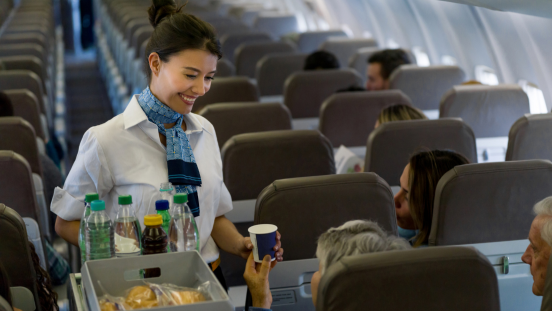As the aviation industry faces evolving customer needs, integrating sustainability and digital innovation becomes crucial for airlines to stay ahead.

At the last edition of WTCE, the session Excellence in Service – Driving Change in a Dynamic Environment brought together leading experts in guest experience management and industry innovation.
The discussion centred on understanding shifting customer behaviours, navigating an evolving competitive landscape, and leveraging innovation to drive meaningful change in a dynamic environment.
Anne De Hauw, Founder of IN Air Travel Experience, and Simon Soni, Advisor and Interim Leader at Simon Soni Experience Management, led the insightful conversation. They were joined by Amy James, Director of Cabin Crew and Interim Director of Onboard Experience at British Airways; Louise Leaupepe, Inflight Experience Senior Manager at Riyadh Air; and Luke Miles, Founder of NewTerritory.
The session offered thought-provoking perspectives on how airlines can adapt to rapid changes in customer expectations, devise strategies to stay ahead in a competitive ecosystem, and implement innovative solutions to transform the onboard experience.
This dynamic exchange provided attendees with crucial takeaways for excelling in the fast-paced world of onboard services and guest experience.
A customer shift
The aviation industry is witnessing a transformative shift driven by changing customer demographics and heightened expectations. With business travel stabilising and leisure travel on the rise, airlines are compelled to rethink their strategies. This blog explores how the travel industry is adapting to new customer demands, the role of sustainability and digital innovation, and the importance of maintaining a human touch in the midst of technological advancements.
Adapting to new customer needs
The modern traveller is younger, more diverse, and places a high value on sustainability and technology. Airlines must cater to these evolving expectations by offering:
- Personalisation: Tailoring experiences to individual preferences.
- Flexibility: Providing options that accommodate varied schedules and preferences.
- Value: Delivering excellent service without compromising on cost-effectiveness.
The expectations of customers are changing; they focus more on sustainability, technology, and flexibility.
Integrating sustainability and digital innovation
Airlines are at a crossroads where integrating sustainability with digital innovation is not just beneficial but necessary.

Embracing the Digital Transformation
To meet the demands of tech-savvy consumers, airlines must evolve into digital platforms that enable hyper-personalisation and operational efficiency. Digital tools like AI and large language models are pivotal in achieving this transformation. Examples include:
- End-to-End Travel Apps: Enhancing customer experience by streamlining travel processes.
- AI-Driven Solutions: From fleet optimisation to predictive analytics, technology is at the core of modern aviation strategies.
Airlines should become tech-driven platforms to enable personalisation, agility, and operational efficiencies.
Sustainability Challenges and Opportunities
Addressing environmental concerns is crucial as travellers increasingly prefer sustainable options. The industry faces the challenge of embedding sustainability into every aspect of operations, from reducing waste to adopting eco-friendly practices.
- Lightweight Innovations: Developing products that are both functional and sustainable.
- Recyclable and Reusable Solutions: Encouraging practices that minimise environmental impact.
Sustainability is not a nice-to-have; it should be embedded in everything we do.
Innovation for holistic experiences
Airlines must focus on creating holistic experiences that resonate with customers on multiple levels. This involves:
- Orchestrating Multi-Sensory Experiences: Using elements like scent, sound, and taste to enhance the passenger journey.
- Cross-Sector Innovation: Learning from other industries such as hospitality and automotive to enrich the travel experience.
Innovation in aviation is about crafting composite signature experiences that resonate deeply with customers.
The balance of technology and human touch
While technology offers numerous benefits, the human element remains vital in aviation. Flight attendants, as the brand’s ambassadors, play a crucial role in delivering exceptional service and hospitality.
The Role of Human Interaction
Even as automation and AI become prevalent, human interactions must retain their significance to ensure a rich and meaningful passenger experience.
Technology can augment human interaction, but people buy into people.
What’s next?
The aviation industry is poised at an exciting juncture where sustainability and innovation are key to meeting new customer needs. By embracing technology while maintaining a human touch, airlines can create value-driven, personalised experiences that align with the expectations of modern travellers. As the industry continues to evolve, staying ahead requires a commitment to purpose, a clear vision, and the courage to innovate.
To succeed, airlines need to think differently, integrate end-to-end experiences, and make sustainability a way of life.
Join us at World Travel Catering & Onboard Services Expo
Join the industry’s main marketplace for a world of inspiration to enhance the onboard experience.
Join us from 14-16 April 2026 at Hamburg Messe.
